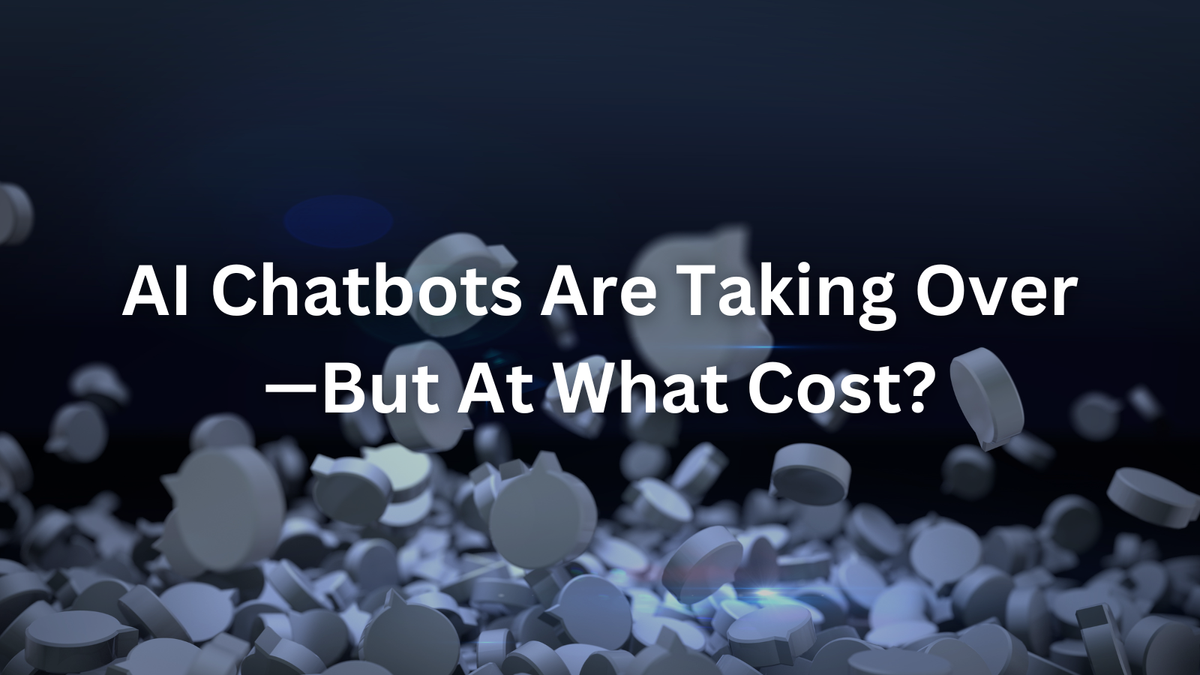AI Chatbots Are Taking Over—But At What Cost?

A new survey reveals that 52% of U.S. adults have used AI chatbots, with ChatGPT leading the way. But here’s what really surprised me: people aren’t just using AI for work—they’re using it for personal interactions, even companionship.
As someone who only uses ChatGPT for work, I was shocked to learn that 51% of respondents primarily use AI for personal reasons rather than work-related tasks. Even more concerning? Many are developing emotional connections with AI.
I previously wrote about the dangers of AI therapists, and this new data only reinforces those concerns. Let’s break it down.
AI Chatbots Are Now Part of Everyday Life
The Elon University survey, conducted by the Imagining the Digital Future Center, found that AI chatbot adoption is skyrocketing:
🔹 52% of U.S. adults have used an AI chatbot
🔹 34% interact with AI daily
🔹 72% have tried ChatGPT, making it the most popular
🔹 50% have used Google’s Gemini
But beyond productivity, people are turning to AI for emotional and social connections—which raises some big questions.
People Are Developing Emotional Bonds with AI
This is where things get interesting—and concerning. The survey found:
❤️ 38% of users believe AI will form deep relationships with humans
💬 Over half have had spoken conversations with chatbots
🤖 9% use AI primarily for companionship and casual conversation
This ties directly into my previous blog post on AI therapists, where I warned about the risks of relying on AI for emotional support. AI can be helpful, but it lacks true empathy and could make people more isolated rather than truly supported.
Are we heading toward a future where AI replaces real human relationships?

AI’s Growing Role in Work & Productivity
While AI is becoming more personal, it’s still a powerful tool for work:
✅ Many users integrate AI with apps like Slack, PowerPoint, and Zoom
✅ Over 50% say AI has boosted their productivity
✅ People use AI for writing emails, research, and summarizing documents
This is more in line with how I use AI—so I was genuinely surprised to read that 51% of respondents use AI primarily for personal rather than work-related tasks.
Do people really talk to AI chatbots for fun? Personally, I can’t imagine using ChatGPT outside of work—but clearly, many do.
The AI Anxiety: Job Losses & Communication Breakdown
Despite AI’s benefits, many users are worried about its long-term impact:
⚠️ 63% fear AI will replace human-to-human communication
⚠️ 59% worry AI will cause massive job losses
These concerns are valid. As AI gets better at mimicking human conversation, will companies start replacing human jobs with AI chatbots?
AI in Politics & Education: The Next Generation of Users
AI is also shaping how people get information and learn:
🗳️ 34% of users turn to AI for political news
🎓 36% use AI for schoolwork or homework
📊 77% of AI users are between ages 18 and 29
With AI playing a bigger role in education, schools are struggling to define how students should use it—and whether it encourages learning or just shortcutting assignments.

Final Thoughts: AI Is Changing Human Interaction—For Better or Worse?
With over half of Americans using AI chatbots, it’s clear that AI is reshaping daily life. But as more people form emotional connections with AI, we have to ask:
🚨 Is AI enhancing human relationships—or replacing them?
I previously wrote about the dangers of AI therapists, and this new data only strengthens those concerns. AI is powerful, but it can’t replace real human connection—at least, not yet.
💬 Do you use AI chatbots outside of work? Are we becoming too dependent on them? Let’s discuss on X(Former Twitter)!
References:
- NBC News, Over Half of American Adults Have Used an AI Chatbot, Survey Finds, March 13, 2025.https://www.nbcnews.com/tech/tech-news/half-american-adults-used-ai-chatbots-survey-finds-rcna196141



